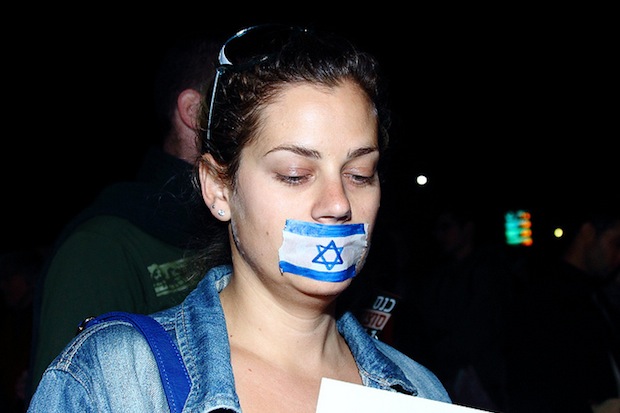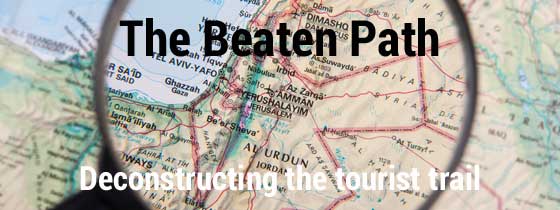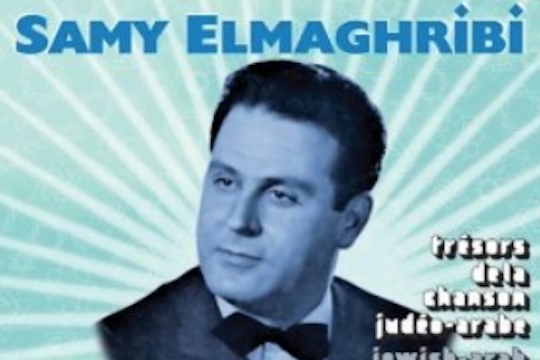As 2014 comes to a close, +972 Magazine’s editors and bloggers took time to look back at the year that was, and share the articles that most resonated with them – in no particular order.
Israel’s watershed moment that wasn’t
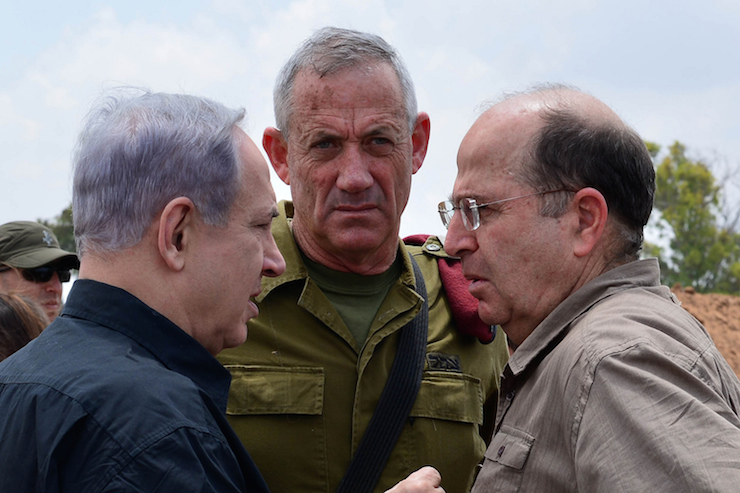
The Gaza war was perceived very differently in Israel and abroad, even among some of this government’s supporters. Specifically, we heard references to the type of atmosphere that prevailed in the Jewish community during the First Lebanon War and the First Intifada — feelings of shock, after which nothing could possibly be the same. Foreign journalists and diplomats expressed similar impressions. But things couldn’t have been more different in Israel, where the political system, the media and most of the public went back to a “business-as-usual” mood the moment the fighting ended, as no lessons learned or policy changes were required after this war. Larry Derfner’s article came at this exact moment, and it captured very early on the complete failure of the Israeli establishment to deal with Gaza — perhaps the most troubling discovery of the post-war period.
The burden, and wall, of Zionism

Inside Israel, any answer other than “I am a Zionist,” has become akin to being un-American in the 1950s. To Israelis, Zionism is a litmus test of nationalism and love of country; for Palestinians it is racism. But in over a century of the modern usage, the term has never meant one thing alone. Its myriad tributaries merged and parted like the waters of the world’s great rivers, Dahlia Scheindlin wrote, tackling an issue that more and more progressive Jews are avoiding, even as they become more and more openly critical of Israel. “Zionism has been reduced to a wall: a ghetto wall separating Jews from other Jews, that we have built ourselves, and a eight-meter-high concrete separation wall, separating Jews from Palestinians.” Has Zionism become a burden?
Replacing the peace process with a civil rights struggle
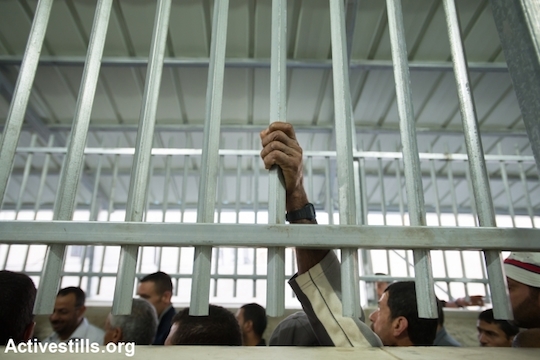
The two-state solution is a highly unlikely outcome in the near future, and there is no way of knowing what the more distant future holds. Regional events, along with internal developments in Israeli society, serve those who oppose an agreement; the occupation empowers those who support it. The solution, Noam Sheizaf writes, is to replace the diplomatic process with a civil rights struggle, to break the occupation into pieces, and deal with each part individually. Doing so opens the door for Arab-Jewish cooperation on both sides of the Green Line, focusing on the lives of real people under occupation. A number of commentators have made calls for a shift toward a rights-based discourse in recent years, but none detailed what that might look like as Sheizaf does.
Silencing dissent in Israel – continued
Silencing dissent doesn’t only mean directly quashing free speech. Silencing, or a chilling effect, also take place when certain forces in society dominate and monopolize the narrative, deciding what is acceptable, what is fringe and what is mainstream. In a follow-up to her acclaimed and assailed New York Times oped, Mairav Zonszein warns that both Israeli society and the government it elects are responsible for the social and political environment in which dissent is silenced – either actively or passively. Just as troubling is a similar environment that has taken hold among American Jewry. Those who insist on marginalizing dissent are themselves perpetuating a reality in which Israel is the single-most divisive issue in contemporary Jewish politics, instead of a normalizing and uniting factor.
Does Israel have a place in Jewish identity?
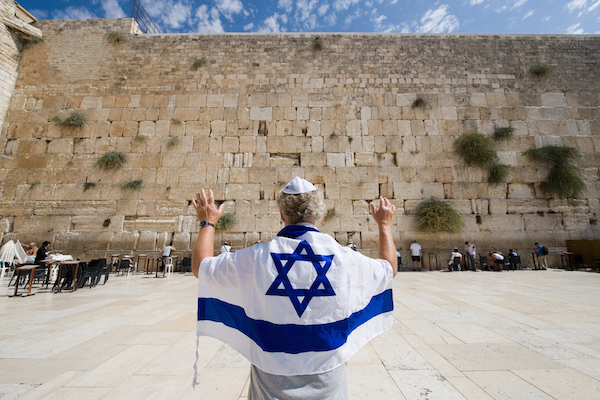
The State of Israel has defined itself as a Jewish state. Its government is attempting to constitutionalize that status. But has Zionism become inseparable from Judaism and Jewish identity? Moving from the U.S. to Israel to Palestine and finally back to Florida gave Mya Guarnieri an opportunity to reflect on her conflicting identities, some chosen and some handed to her through the generations. What needs to be interrogated, she writes, is Israel’s claim on our identity and the ongoing attempts to conflate our identity with a piece of land. If we confuse our sense of selves with a piece of land, she concludes, we risk losing our identities.
The origins and politics of Israel’s refugee debate
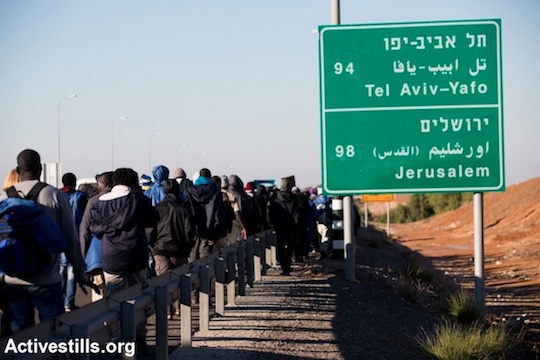
Israel has a complicated relationship with refugees. On the one hand it was founded as a haven for Jewish refugees in the wake of the Holocaust. When it comes to non-Jewish refugees, however, it’s an entirely different story. Taking an in-depth examination of how Israel’s asylum regime has evolved since its early years through the beginnings of an influx of tens of thousands of African refugees and today’s situation of desert detention facilities, Michael Schaeffer Omer-Man wrote about how we arrived at the current impasse, what is happening today, and a range of possible solutions to the crisis. Although the legal situation for African refugees has changed in recent months, the piece remains a required piece of reading for anyone who wants to understand what’s wrong with the current system and how it can be fixed.
Will there be peace if Palestinians lay down their arms?
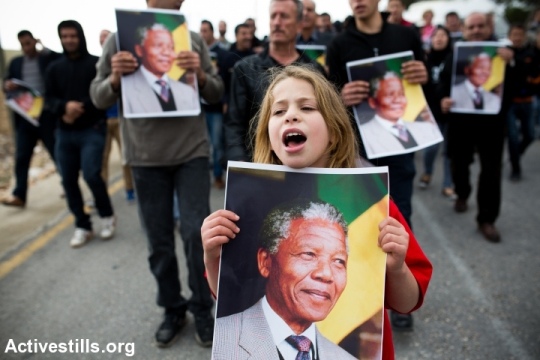
Palestinians know they have no chance of winning with armed struggle. They also know that negotiations are unlikely to lead to an agreement. Even non-violent initiatives like the BDS movement and weekly village protests against the West Bank wall are quickly accused of being anti-Semitic. It would be absurd for Palestinians to ask Israel what form of protest or struggle it finds acceptable, wrote Aziz Abu Sarah and Marc Gopin at the start of this summer’s war, adding that it would be ridiculous for the world to expect millions of people to continue, happily and quietly, living under occupation. While laying down arms is a positive step towards peace, it is not enough to end this conflict. There must also be a vision for freedom and an end to the occupation.
‘We will overcome’: Arson and mourning at Jerusalem’s bilingual school
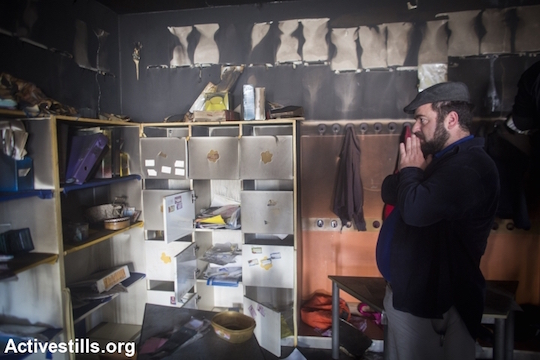
For many Israelis and Palestinians who believe in a shared future, the arson of one of Israel’s few integrated Jewish-Arab schools was a shot to the heart. Orly Noy, whose two daughters attend the burned school, it was a moment of desperation, steadfastness and hope. Noy was at a demonstration against the “Jewish Nation-State Law” when she got the call informing her of the arson. “There we were demonstrating against political arson, and not too far away someone is already doing it with gasoline and matches. This time, the fire was ignited inside our home,” she wrote.
What Palestinian media is saying about the Jerusalem violence
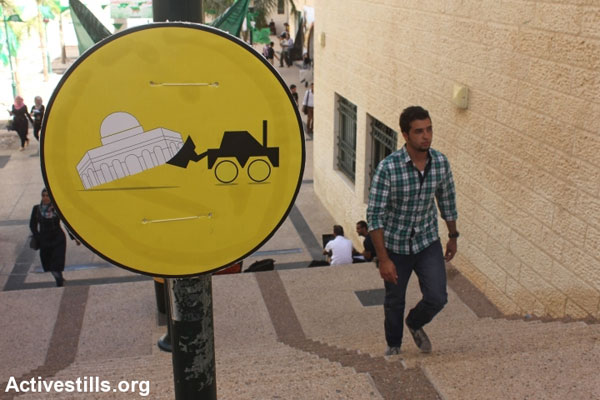
Israelis understand why the peace process collapsed, they understand the escalations that led to this summer’s Gaza war, and they even understand the fragile political system that led to the upcoming elections. What they don’t understand is what is behind the violence that bubbled and boiled through Jerusalem this year. Israelis simply don’t hear the Palestinian perspective. In a survey of Palestinian media, Henriette Chacar broke that wall down. From the murder of Muhammad Abu Khdeir to unrelenting settlement expansion and police harassment, the sources of anger in East Jerusalem are many. But the aspirations and provocations of right-wing Israeli Jews to change the status quo in the Aqsa Mosque compound seems to be the driving force, she wrote.
Unafraid: The new generation of Palestinian activists in Israel

The previous generation of Arab citizens of Israel grew up with the memories and legacy of living under direct military rule. The new generation doesn’t give a damn about the Shin Bet, author and journalist Ala Hlehel writes. It is a generation bereft of anxiety and devoid of inferiority complexes, it is innovative in its struggle and uncompromising in its demands. Today’s young activists believe you can’t cherry-pick your freedoms, and that is where their secret to power lies.
Gaza dispatch: ‘Death will come and life will go on’
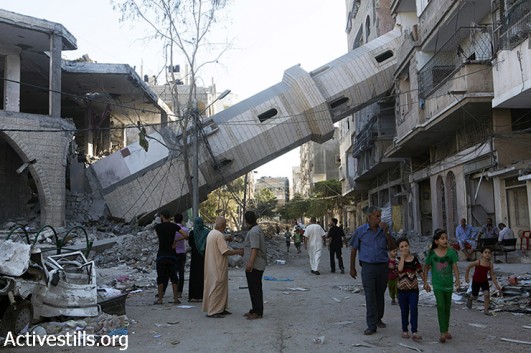
The aim for Gazan civilians during this latest war was simple: to survive. +972’s Samer Badawi reported from the Strip during Israel’s military assault this summer, bringing heartbreaking accounts of how even during the worst days of shelling and bombing, fighting and destruction, the people of Gaza struggled to maintain dignity through whatever semblances of normalcy they could maintain. One of his most touching — and telling stories — took place as he was standing on the rubble of a bombed-out home and one of its young residents brought him juice. “ It’s an act of hospitality so leavened in the Arab mind that it leaves him blind to the irony. ‘I’m sorry,’ he says. ‘There’s nowhere to sit.’ My colleague and I catch each other’s eyes. There are tears welling. The young man sees this and smiles: ‘What are we supposed to do? Bow down’?”
The Beaten Path (Series of 13 articles)
There’s no point in ruining a good story, unless you ruin it with an even better story. In a new series of adventures, travel writer Yuval Ben-Ami sets out to deconstruct the Holy Land’s most famous and heavily trodden tourist attractions. Some tourists explore only the biblical. Others see nothing but the occupation. Some see a land that is entirely Jewish, others an Arab land colonized by Jews. Very few foreign tourists focus on nature and the environment, but some do. Others are here for family, others still, for the beach. Emerging from this country confused makes so much more sense than believing that we’ve figured it out. It is a land full of stories, contradicting stories, and we would be fools to suffice with preconceived notions — to miss out on its mind boggling complexity. Join him on his journey here.
Re-learning history: A tribute to North Africa’s Jewish artists
Though often forgotten in Israel today, some of North Africa’s biggest cultural assets were in fact Jewish. Those musicians, stars who shaped Maghrebi music from the classical to the contemporary, received and continue to receive prizes, are the subjects of documentaries and are generally considered cultural assets of North African culture. But most of that recognition takes place outside Israel. In Israel, these musicians were at best ignored – at worst they were ridiculed. Our favorite piece from Cafe Gibraltar this year.
Read also:
The 25 most-read +972 posts of 2014

